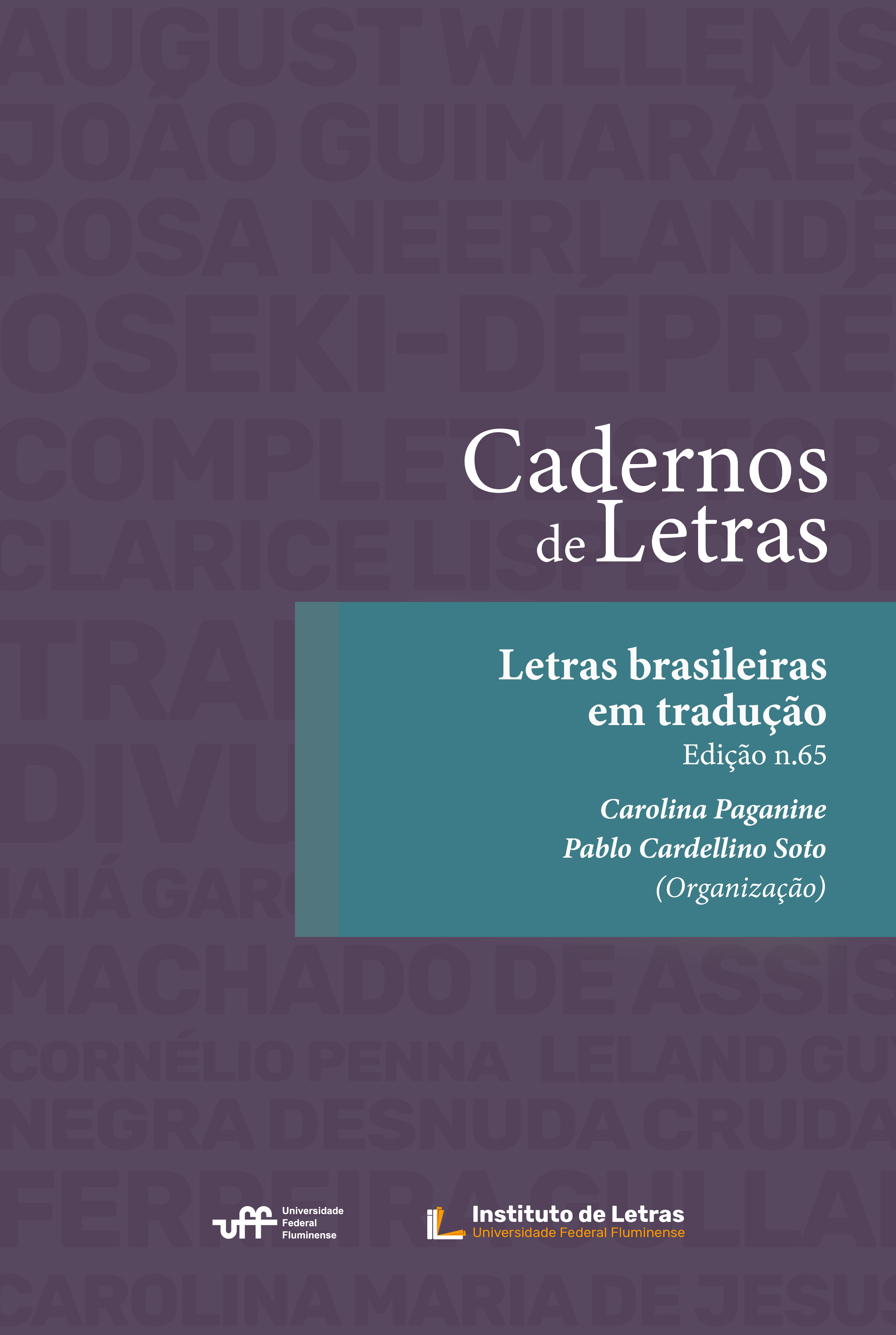O tradutor como divulgador (ou não) da cultura do texto de partida: as notas de rodapé de duas traduções para o inglês de Iaiá Garcia, de Machado de Assis
DOI:
https://doi.org/10.22409/cadletrasuff.v33i65.55554Resumo
A maneira como aspectos culturais presentes em uma dada obra literária são traduzidos para um novo sistema literário depende primordialmente das escolhas de seus tradutores, que podem ser identificadas como mais domesticadoras ou mais estrangeirizadoras (Venuti, 1995), e por isso, os tradutores detêm papel extremamente relevante quando se examina a tradução para o inglês dos marcadores culturais de uma determinada obra literária. Este artigo busca, por meio da análise descritiva dos paratextos (Genette, 1997), mais especificamente das notas de rodapé, discutir se o tradutor que as utiliza, e que, por isso, tende a ser mais “estrangeirizador”, realmente apresenta da melhor forma as questões culturais (Aubert, 2006) do texto de partida no texto de chegada. Para subsidiar essa análise, foram comparadas duas traduções para o inglês de Iaiá Garcia (1878), de Machado de Assis, quais sejam: Yayá Garcia (1976), traduzida por Robert Scott-Buccleuch, publicada no Reino Unido, e Iaiá Garcia (1977), traduzida por Albert Bagby Jr, publicada nos Estados Unidos, e ambas cotejadas com o texto de partida correspondente em português. Com base no cotejo desses três textos, conclui-se que Scott-Buccleuch tende a ser um tradutor mais “domesticador” enquanto Bagby Jr. tende a ser mais “estrangeirizador”. No entanto, na maioria das vezes em que Bagby Jr. utilizou notas de rodapé em sua tradução para esclarecer aspectos da cultura brasileira, aparentemente ele não conseguiu com esse recurso destacar as peculiaridades culturais do país, o que demonstra que nem sempre o tradutor mais “estrangeirizador” consegue evidenciar os aspectos culturais do texto de partida.
Downloads
Downloads
Publicado
Edição
Seção
Licença
Copyright (c) 2024 Cadernos de Letras da UFF

Este trabalho está licenciado sob uma licença Creative Commons Attribution-NonCommercial 4.0 International License.
Autores que publicam em Cadernos de Letras concordam com os seguintes termos:
Os autores mantêm os direitos e cedem à revista o direito à primeira publicação, simultaneamente submetido a uma licença Creative Commons CC-BY-NC 4.0, que permite o compartilhamento por terceiros com a devida menção ao autor e à primeira publicação pela Cadernos de Letras.
Os autores podem entrar em acordos contratuais adicionais e separados para a distribuição não exclusiva da versão publicada da obra (por exemplo, postá-la em um repositório institucional ou publicá-la em um livro), com o reconhecimento de sua publicação inicial na Cadernos de Letras.






